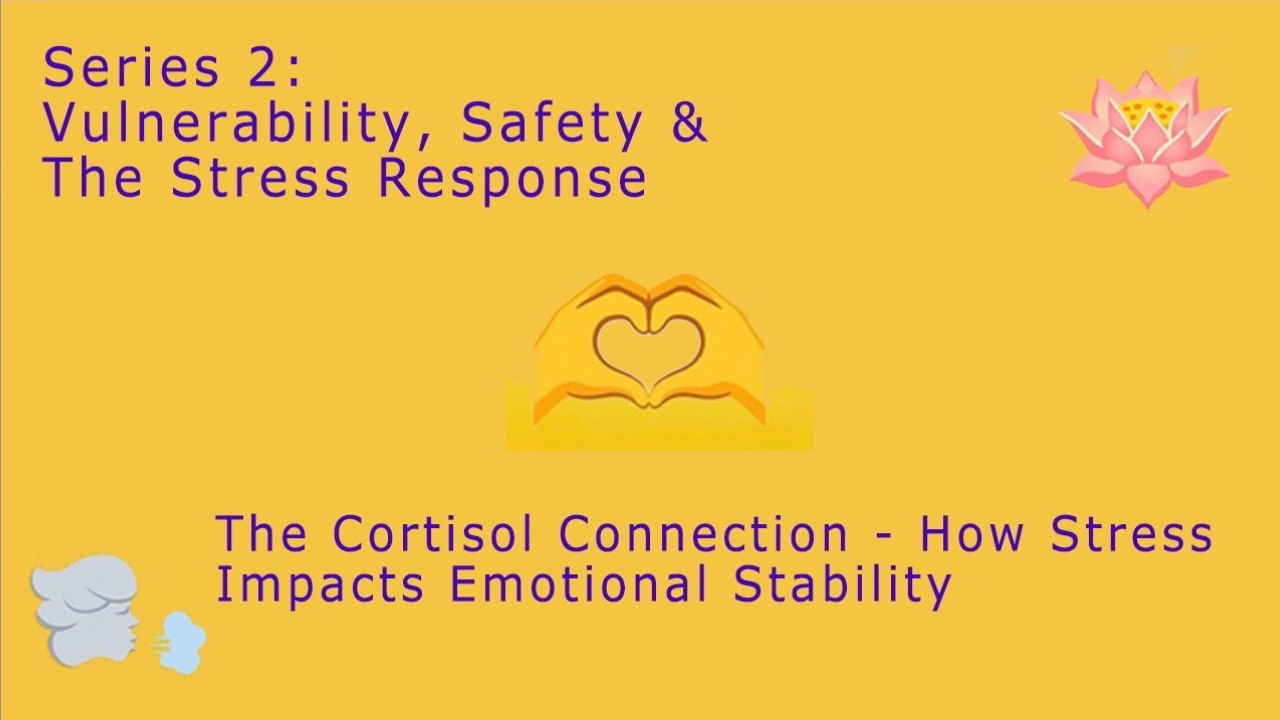The Cortisol Connection – How Stress Impacts Emotional Stability.
May 05, 2025
Have you ever felt mentally foggy, emotionally drained, or like your patience is razor-thin? Maybe your mood swings unexpectedly, or you find yourself constantly on edge, struggling to relax even when things are “fine.”
This isn’t just mental or emotional overwhelm—it’s your body’s chemistry reacting to stress.
At the center of this response? Cortisol—the body’s primary stress hormone.
While cortisol is essential for survival, chronic stress can keep it elevated for too long, leading to emotional instability, exhaustion, and even physical health issues. Understanding the cortisol connection can help you reclaim emotional balance and resilience.
What is Cortisol & Why Does It Matter?
Cortisol is produced by the adrenal glands and is released in response to stress, perceived threats, or increased demand on your energy. It plays a role in:
🔹 Regulating energy levels throughout the day
🔹 Helping you respond to challenges by increasing alertness
🔹 Influencing mood, focus, and motivation
🔹 Controlling inflammation and immune response
In a balanced system, cortisol naturally rises and falls throughout the day. However, when stress is constant, cortisol stays elevated for too long, keeping your body in a prolonged state of alert.
Signs of High Cortisol – When Stress Becomes a Problem
If cortisol levels remain high over extended periods, it can create a cascade of emotional and physical symptoms, including:
🚨 Emotional Instability – Feeling irritable, reactive, or emotionally drained
🚨 Increased Anxiety – Struggling to relax, feeling “wired but tired”
🚨 Brain Fog & Memory Issues – Trouble concentrating, forgetfulness
🚨 Disrupted Sleep – Waking up at 3 AM with racing thoughts
🚨 Fatigue & Burnout – Feeling exhausted even after rest
🚨 Cravings & Weight Changes – Increased sugar cravings or weight fluctuations
Cortisol imbalance doesn’t just affect emotions—it can disrupt your ability to make decisions, maintain emotional composure, and recover from stress.
How High Cortisol Impacts Emotional Resilience
Chronic high cortisol makes it harder to:
❌ Regulate emotions – Small stressors feel overwhelming
❌ Think clearly under pressure – Decision fatigue kicks in
❌ Stay present in the moment – Anxiety hijacks focus
❌ Recover from emotional triggers – The stress response lingers too long
This creates a cycle of reactivity, where the body stays stuck in fight-or-flight mode, making even small frustrations feel overwhelming.
How to Lower Cortisol & Regain Emotional Balance
The key to building resilience isn’t avoiding stress—it’s helping your body recover from it. Here’s how to naturally lower cortisol and restore emotional stability.
1️⃣ The 2-Minute Cortisol Reset (Fastest Way to Calm Your Nervous System)
🚀 Try This:
• Inhale deeply through your nose for 4 seconds
• Hold the breath for 4 seconds
• Exhale slowly through your mouth for 8 seconds
• Repeat 3–5 times
This activates the parasympathetic nervous system, signaling to your body that it’s safe to release stress and lower cortisol levels.
2️⃣ Reduce Cortisol-Spiking Triggers
🔹 Caffeine Overload – Too much caffeine raises cortisol levels. Try switching your afternoon coffee for herbal tea.
🔹 Skipping Meals – Low blood sugar signals “stress” to the body. Eat protein-rich meals to keep energy stable.
🔹 Overworking Without Breaks – Long work hours without rest fuel cortisol spikes. Try a 5-minute reset break every 90 minutes.
3️⃣ Move Stress Out of the Body
Cortisol is designed to prepare you for action—so when stress isn’t physically released, it lingers.
🚀 Try This:
✅ Walk or stretch for 5–10 minutes
✅ Shake out your hands and arms (helps discharge stress energy)
✅ Engage in slow, controlled movement like yoga or tai chi
Physical movement tells the body: “The stress is over. You can reset now.”
4️⃣ Reconnect to Your Body’s Natural Rhythm
Your body wants to return to balance—but modern stressors keep it in overdrive.
🚀 Try This:
✅ Morning sunlight exposure (Regulates cortisol & melatonin)
✅ Set a wind-down routine before bed (No screens 30 minutes before sleep)
✅ Hydrate early in the day (Dehydration increases stress response)
When you work with your body, cortisol naturally stabilizes, helping you feel more centered and resilient.
Your Stress Response is Not Permanent—You Can Shift It
Cortisol isn’t the enemy—it’s your body’s way of keeping you alert and prepared. The problem isn’t stress itself—it’s the lack of recovery from stress.
Each time you:
✅ Pause and take a deep breath instead of reacting
✅ Move your body to discharge stress energy
✅ Give yourself breaks from high-intensity tasks
…you teach your nervous system that it’s safe to return to a state of calm and stability.
💡 Next Up in This Series: Emotional Burnout & Adrenal Fatigue – The Hidden Costs of Overworking.






